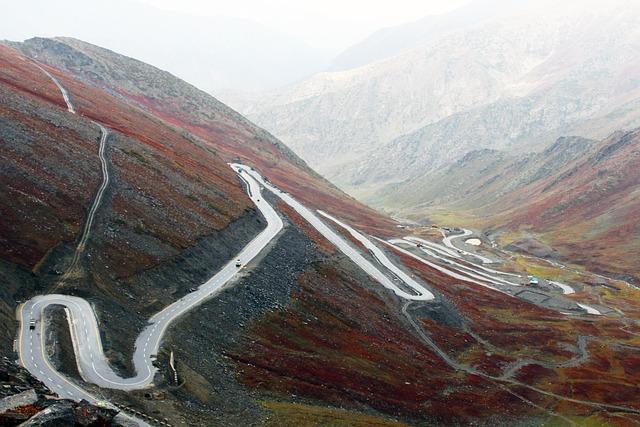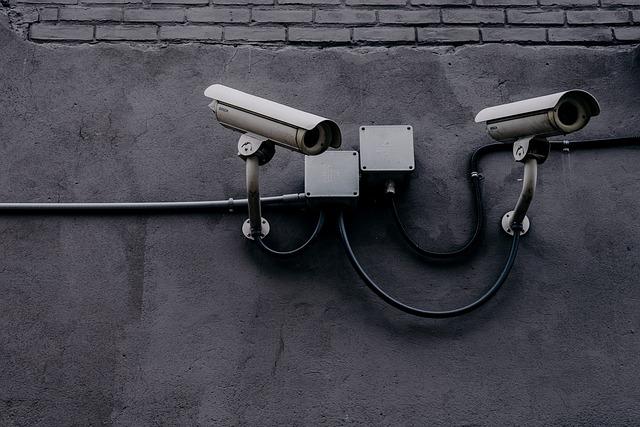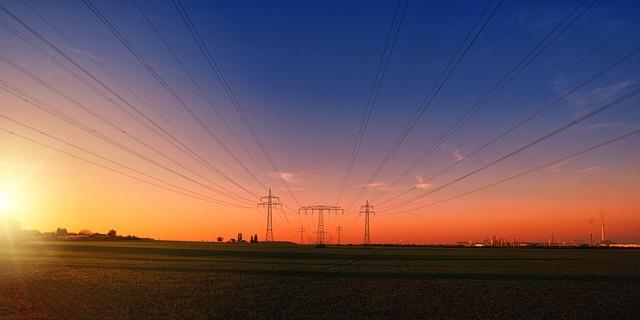In the complex tapestry of international relations, nations often find themselves navigating a labyrinth of power, influence, and partnership. Pakistan, a country at the crossroads of South Asia and the broader Islamic world, has long been a key player in this dynamic arena. With its rich history, diverse culture, and strategic geographical positioning, Pakistan’s role on the global stage has continually evolved, influenced by a myriad of factors including shifting geopolitical alliances, economic challenges, and emerging global threats. As the world grapples with the repercussions of climate change, economic disparity, and regional conflicts, Pakistan’s diplomatic efforts and international collaborations have taken on new significance. This article delves into the metamorphosis of Pakistan’s foreign policy and its increasing engagement with global powers, regional neighbors, and multilateral institutions, exploring how this nation is redefining its identity and influence in an increasingly interconnected world.
Energizing Diplomacy: Pakistans Strategic Partnerships in a Changing World
The landscape of international relations is shifting rapidly, and Pakistan is actively redefining its role in the global arena. One of the most significant aspects of this evolution is its commitment to forging strategic partnerships that not only bolster its national security but also enhance economic cooperation. By engaging with countries across various regions, Pakistan aims to create a multifaceted network of alliances that can withstand the tests of changing geopolitical dynamics. The nation recognizes that diplomacy extends beyond traditional boundaries, embracing cooperation in sectors such as energy, trade, and technology.
To illustrate this commitment, consider the following key partnerships that represent Pakistan’s strategic outreach:
- China: A cornerstone of Pakistan’s foreign policy, characterized by the China-Pakistan Economic Corridor (CPEC) that facilitates infrastructure development and energy projects.
- United States: The relationship, while complex, continues to evolve with a focus on counter-terrorism, trade, and investment.
- Middle East: Strengthening ties with Gulf nations for economic collaboration while pursuing a balanced approach to regional stability.
Complementing these strategic initiatives is a series of energy cooperation projects pivotal for Pakistan’s growth. The table below outlines some of the prominent energy collaborations:
| Partnership | Sector | Objective |
|---|---|---|
| China | Renewable Energy | Solar and wind project development to enhance sustainable energy access. |
| Qatar | LNG Supply | Long-term agreements for liquefied natural gas to address energy shortages. |
| UAE | Oil Refinery | Investment in refineries to boost domestic oil production and reduce imports. |
Through these partnerships, Pakistan aspires to transform challenges into opportunities, leveraging its strategic location and diverse alliances to navigate a complex global landscape. By fostering innovation and investing in energy security, Pakistan is positioning itself as a pivotal player on the world stage, ready to contribute to a more interconnected and resilient future.

Navigating Challenges: Addressing Regional Security and Economic Stability
In the complex web of regional geopolitics, the interplay between security challenges and economic stability remains critical for Pakistan. With its strategic location at the crossroads of South Asia, the Middle East, and Central Asia, Pakistan faces a myriad of pressures that demand a multifaceted approach. The nation is grappling with internal security issues, such as terrorism and sectarian violence, which undermine the socio-economic landscape. To mitigate these challenges, it’s essential for Pakistan to enhance its diplomatic engagements, foster partnerships with neighboring countries, and actively participate in regional security dialogues aimed at building trust and collective resilience.
Furthermore, the economic ramifications of these security issues can be significant. A stable economy is a prerequisite for sustainable growth and development, and Pakistan’s ability to foster an environment conducive to investment and trade hinges on its security landscape. Key measures to promote economic stability include:
- Improving infrastructure to facilitate trade and connectivity.
- Enhancing bilateral trade agreements with regional partners to boost commerce.
- Investing in human capital to drive innovation and entrepreneurship.
By addressing these interconnected factors, Pakistan can carve a path toward a more secure and economically stable future, which in turn enhances its position in global international relations.

Soft Power Dynamics: Cultural Diplomacy as a Tool for Strengthening Ties
The concept of cultural diplomacy has emerged as a critical instrument for nations navigating the complexities of global interactions. For Pakistan, leveraging its rich cultural heritage offers a unique opportunity to enhance bilateral relations and foster international partnerships. By engaging in cultural exchange programs, showcasing traditional arts, and promoting languages, Pakistan can project a favorable image that resonates on a global stage. This approach not only enriches Pakistan’s soft power but also invites collaborative dialogue across cultures, encouraging mutual respect and understanding. Some key initiatives include:
- Art Exhibitions: Hosting exhibitions that exhibit Pakistani artists and their diverse expressions.
- Culinary Diplomacy: Sharing traditional recipes and culinary practices to celebrate Pakistan’s vibrant food culture.
- Academic Exchanges: Establishing scholarships and exchange programs to facilitate learning and collaboration with foreign institutions.
Furthermore, the strategic promotion of Pakistan’s diverse languages and literature can serve as a bridge to connect with people from various backgrounds. A focus on soft power through educational institutions and cultural centers abroad can pave the way for enhanced diplomacy. The following table highlights essential aspects of cultural diplomacy that Pakistan can utilize to strengthen its international ties:
| Aspect | Description |
|---|---|
| Exchange Programs | Facilitating academic and artistic exchanges to foster mutual understanding. |
| Cultural Festivals | Organizing events that celebrate Pakistan’s heritage and invite international participation. |
| Media Collaborations | Creating platforms for sharing stories that highlight Pakistan’s contributions to global culture. |

Towards a Cooperative Future: Recommendations for Enhanced Global Engagement
As Pakistan navigates its evolving role in global international relations, fostering collaboration and partnership with various stakeholders is crucial. This can be achieved through a multi-faceted approach that emphasizes shared goals and collective action. First and foremost, engaging in bilateral and multilateral dialogues with key nations will not only enhance diplomatic ties but also promote mutual understanding. Additionally, establishing strategic alliances across sectors such as trade, technology, and security can pave the way for innovative solutions to common challenges. Furthermore, active participation in international organizations will allow Pakistan to play a pivotal role in global decision-making processes.
The integration of cultural diplomacy can also significantly contribute to Pakistan’s efforts in strengthening its global standing. By promoting exchanges that highlight the nation’s rich history and cultural diversity, Pakistan can cultivate a positive international image. Importantly, embracing sustainable development goals will align Pakistan with the global community’s vision for a better future. Through various initiatives, both domestically and internationally, we can enhance our appeal as a partner for sustainable growth. Below is a quick summary of practical recommendations for facilitating these efforts:
| Recommendation | Description |
|---|---|
| Promote Cultural Exchange | Foster understanding through arts, education, and tourism. |
| Form Strategic Alliances | Collaborate with nations on common interests. |
| Engage in International Forums | Participate in dialogues to influence global policies. |
| Implement Sustainable Initiatives | Align national policies with global sustainability goals. |
To Wrap It Up
Pakistan’s journey through the complex web of international relations serves as a poignant reminder of the dynamic nature of global politics. As the nation navigates challenges and seizes opportunities, its evolving role is shaped by a combination of strategic partnerships, regional aspirations, and a commitment to a multi-faceted foreign policy. With shifting alliances and emerging global threats, Pakistan stands at a crossroad, poised to redefine its identity on the world stage. As we look to the future, the international community watches closely, for a recalibrated Pakistan could illuminate pathways toward cooperation, stability, and growth in an increasingly interdependent world. In this era of change, the narrative is yet to be fully written—an ongoing story filled with potential and promise as Pakistan continues to assert its place in the global arena.



